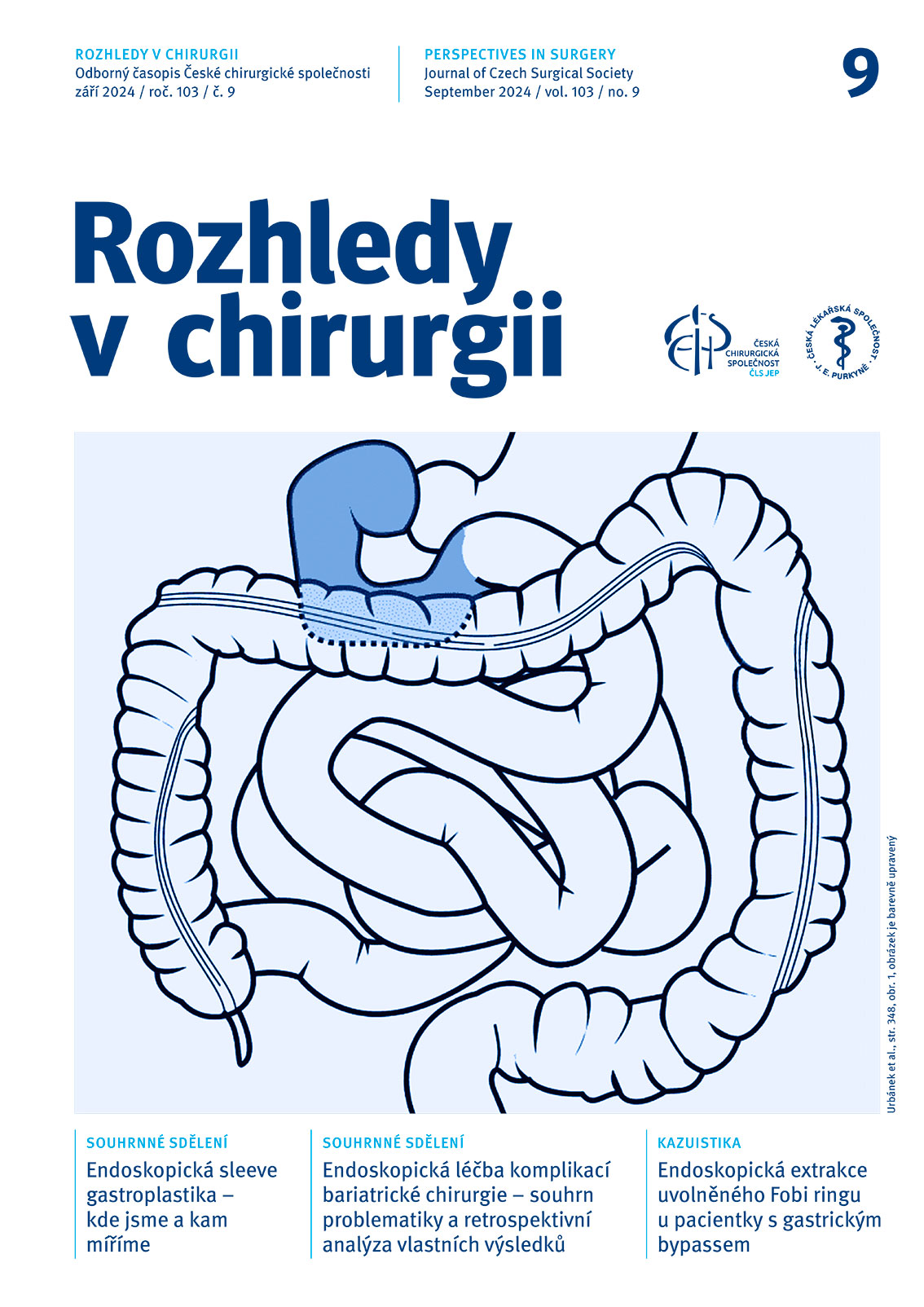Abstract
Bariatric and metabolic surgery is the most invasive but also the most effective treatment for severe obesity and associated comorbidities. The most common procedures performed are laparoscopic sleeve gastrectomy and Roux-Y gastric bypass. Postoperative complications occur in 4–10% cases. The majority of them are mild and are treated conservatively. Complex management of severe complications often involves surgical re-intervention, which is associated with high morbidity. Technological advancements in therapeutic endoscopy expand the options for minimally invasive treatment of these complications and, in selected cases, may even be the method of choice in their management. The authors present a summary of current endoscopic procedures for managing ulcerations, leaks, fistulas, strictures, and other complications. Based on a cohort of 45 patients treated over a period of 10 years (11/2013–11/2023) at the district hospital in Jablonec nad Nisou, an overview of the endoscopic methods used, procedure numbers, duration, and outcomes of endoscopic treatment is provided. The author’s commentary describes trends leading to further improvement in the outcomes of endoscopic treatment.
doi: 10.48095/ccrvch2024336

